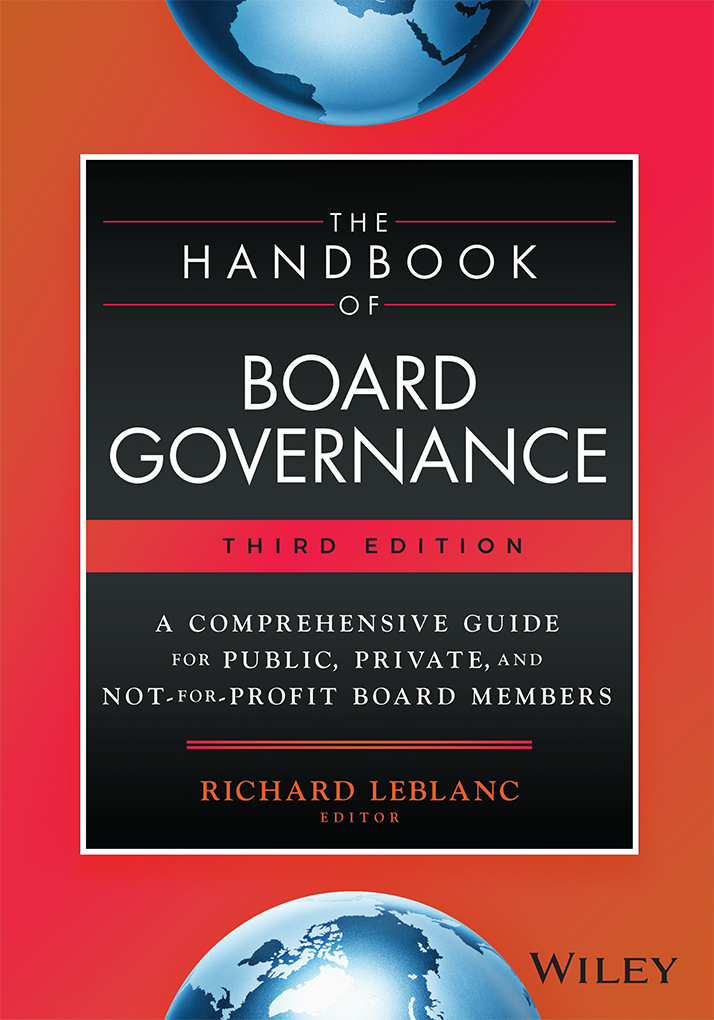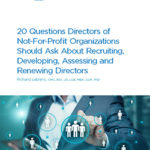I remember an institutional shareholder speaking at a corporate governance conference and proclaiming that what boards of directors need most is “unconflicted directors giving unconflicted advice.” “Unconflicted” directors – otherwise known as “independent” directors without ties to the company or its management – are thought to be disinterested and more effective at monitoring management and operating in the best interests of the company overall.
Assessing whether directors are conflicted, however, occurs differently compared to that of senior management and other employees.
In directors’ cases, the assessment of conflicts is done by the board, inside the boardroom. Directors assess whether they have “material relationships” that could be “reasonably expected” to interfere with their “independent judgment.”
There is no reason why the review of independence of directors should not be subject to an objective standard of reasonableness, as it is for managers and other employees, to accompany the subjective view of individual directors.
For management and employees, conflicts of interest are subject to senior management or board of directors review (typically under a Code of Conduct). The perception of a conflict is as important – if not more important – than whether the manager believes he or she is conflicted.
A good conflict policy focuses not only on the subjective view of the manager or employee, but an objective “reasonable perception” viewpoint as well. A manager could believe that he or she is not conflicted, but when a relationship is viewed through an objective lens, the perception of a conflict may exist.
Directors may be subjectively of a view that a director or group of directors may not be conflicted, but that view may not be objectively reasonable. Further, social connections among directors, and between the directors and the CEO, may not be reflected in formal independence standards, or even detected. We saw this recently in News Corp whose directors had social and personal connections to Rupert Murdoch. Lucy Marcus and Nell Minow have done very effective jobs scrutinizing the statutory independence of News Corp directors, who have direct ties company management and the controlling shareholder. Media stories and scrutiny breeds skepticism and undermines the credibility of good boards.
My own research suggests that formal independence standards may not equate with independence of mind within a boardroom. A CEO may try to “capture” a director through gifts, trips, vacations, charitable contributions, jobs for his or her children, and other forms of social favoritism (documented in my research). Long serving or “interlocked” directors, or directors with affiliations to service providers, may also not have independence of mind.
Directors may quite simply be the CEO’s friends.
A few weeks ago at a research symposium I attended at University of Texas, a paper was presented that addressed the pre-existing social connections with the CEO that independent directors had. The finding by Professor Huijing Fu were that these social connections between the CEO and directors compromised the board’s ability to monitor.
Boards are afforded considerable latitude in terms of how they assess their own conflicts of interest, and perhaps this shortcoming should be addressed. Directors may have vested interests in having narrow, limited, subjective categorical standards of independence. Lawyers may as well, in providing assurance to clients.
The review of conflicts of interest is crucial, as corporate governance effectiveness – including oversight of transactions between insiders by a subset of independent directors – is underpinned in large measure by whether directors – including the Board Chair – are independent or not. Proxy advisory and rating agencies tend to assess director independence by the outputs or decisions a board takes. Perhaps independence should be scrutinized earlier on, before decisions are taken or even before directors come to the boardroom.
It is time to rethink how the independence of directors is assessed.
Posted by Richard Leblanc on Sep 13, 2011 at 4:28 pm in Independence and Role Clarity |












